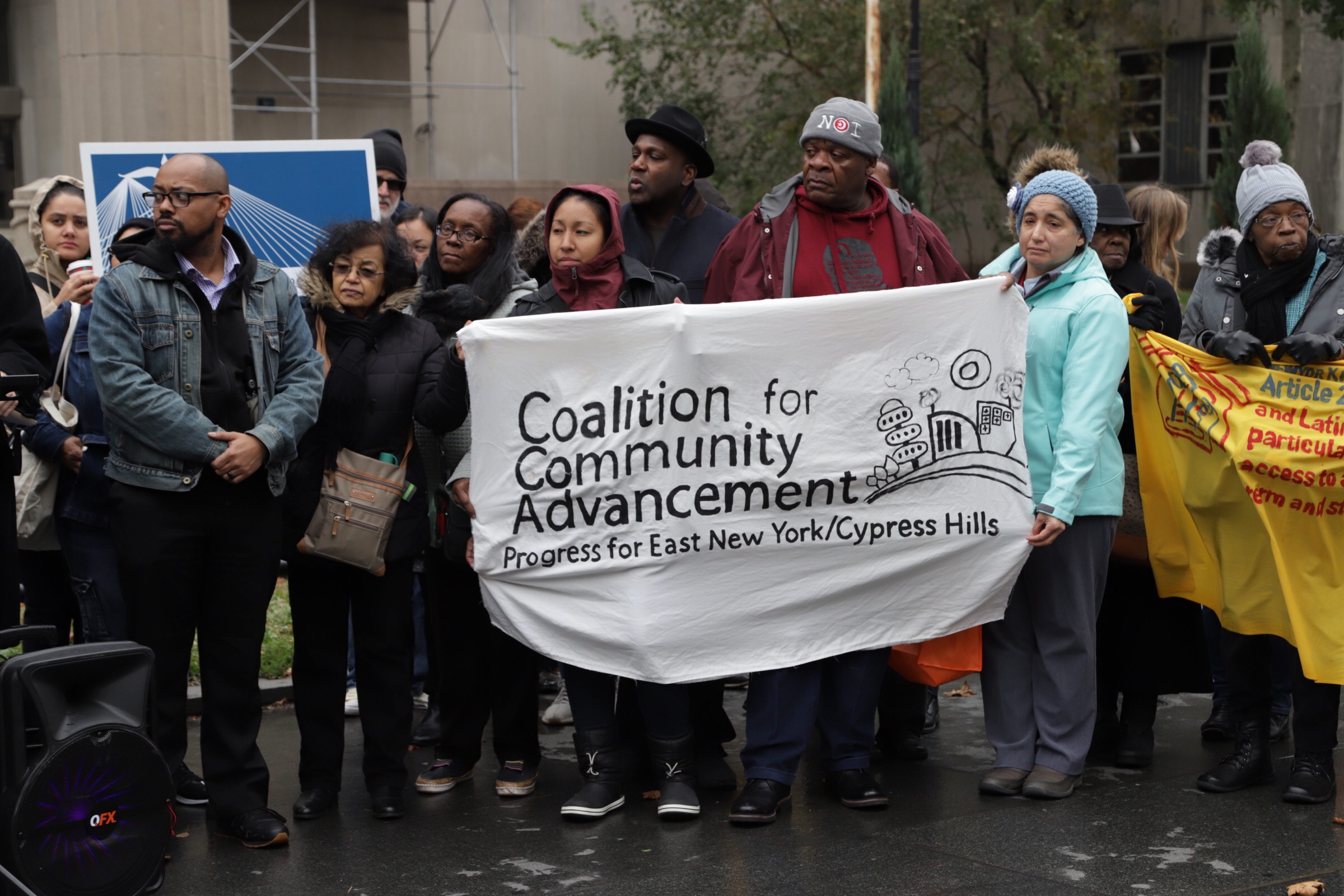With ‘flip tax,’ a push to save affordable homeownership

Homeowners united with housing advocates and local officials on the steps of Brooklyn Supreme Court this week to unveil a set of principles aimed at preserving affordable homeownership, including a measure that would tax any investor looking to make a quick buck on the borough’s booming real estate market.
“The Homeowner Bill of Rights” was unveiled on Tuesday by the Coalition for Affordable Homes. It calls for state passage of legislation including the Small Home Anti-Speculation Tax — which imposes a 15 to 20 percent tax on property that is transferred to a new owner within two years of ownership. The revenue that is raised through this tax will then be used to finance affordable housing efforts through the state’s Homes and Community Renewal program.
“We really want to emphasize how important it is for real people in neighborhoods to own homes in New York. Our homes and communities are for families and not investors,” said Christie Peale of Center for NYC Neighborhoods. “We are calling on the state and city electeds to make sure that our communities are for long-term investment by families and not short-term extraction by investors.”

Brooklyn Boro
View MoreNew York City’s most populous borough, Brooklyn, is home to nearly 2.6 million residents. If Brooklyn were an independent city it would be the fourth largest city in the United States. While Brooklyn has become the epitome of ‘cool and hip’ in recent years, for those that were born here, raised families here and improved communities over the years, Brooklyn has never been ‘uncool’.